Know more:
Domingos Camarinha
(N. 3 October, 1915 - M. 17 May, 1993)Domingos Augusto Camarinha, a remarkable figure in the history of Lisbon's fado as an interpreter of the Portuguese guitar, was born in Lisbon, in the Graça neighborhood, on October 3, 1915.
His interest in music came under the influence of his father, who had a special interest in the guitar and knew how to play some chords. With only 7 years old, Domingos Camarinha already played Fado Corrido correctly and, when he was 10 years old, he was given a cavaquinho to develop the skills he had already revealed.
At the age of 11 (1926), after completing primary education, he started in the art of barbering, an activity where he had the chance to live with several fado singers and instrumentalists, taking the opportunity to learn and develop the art of the guitar with others. Later, Domingos Camarinha went to work as a counter employee and even set up his own business in a framing business, an activity he exercised until 1962.
He began his career as a professional guitar player at the age of 23, doing loose shows, the first of which dates from October 2, 1938 and came about through the hand of Salvador Gomes. Soon after, Domingos Camarinha had the opportunity to replace the famous Armandinho in Retiro da Severa for a few days. From then on, and without prejudice to his profession, Domingos Camarinha started to work in all the houses, cafés and fadistas retreats in Lisbon, starting at Café Mondego, in 1939, and later passing by Solar da Alegria, Café Latino, Café Vera Cruz , Retiro da Severa, Pavilhão Português and Café Luso.
Since that time, Domingos Camarinha has followed the best voices of fado, such as Ercília Costa, Berta Cardoso, Joaquim Campos, Adelina Ramos, Manuel Cascais, José Porfírio, Maria do Carmo Torres, Alberto Ribeiro, António dos Santos, Márcia Condessa, Amália Rodrigues, Celeste Rodrigues, Júlio Proença, Alfredo Marceneiro, Maria José da Guia, Tristão da Silva, Anita Guerreiro, Lucília do Carmo, Frutuoso França, Fernando Farinha, Manuel Fernandes, Manuel de Almeida, Tony de Matos, Maria da Fé, Fernanda Maria and Fernanda Peres, among many others.
A milestone in the guitarist's career was his regular performance on Rádio Club Português broadcasts, between 1944 and 1948, on a fado and guitars program, live on Mondays. The cast of instrumentalists Salvador Gomes and Amadeu Ramin completed these issues.
At the same time, accompanied by Santos Moreira, he recorded a variation program at the BBC in London and, with Américo Silva, he recorded the music, of his own, for an advertising program for Port Wine Offley (from Information et Publicité, Place de Valois , Paris), which was broadcast by Radio Andorra, Radio Monte Carlo and Radio Luxembourg.
From 1954 until 1966 Domingos Camarinha accompanied Amália Rodrigues in performances throughout Europe, as well as Africa, Asia Minor, North America and Brazil. From the collaboration with Amália Rodrigues, it should be noted that “in addition to being an outstanding performer, he was also responsible for the singer's repertoire, since, on the one hand, he transcribed for guitar the compositions that others had written on the piano (Alain Oulman or Álvaro Duarte Simões) and, on the other hand, he was the author of several fados, such as “Fado dos Bailaricos” and “Cuid Coração”, among others. ” (cf. António Dinis, 2006).
On the date of the replacement of the piece "Severa", taken to the scene by Vasco Morgado at the Teatro Monumental, in 1955, the guitarist took the stage following Amália's interpretations. In the 1950s, Domingos Camarinha also appeared on cinema screens. First he integrated the set of guitars that accompanied Deolinda Rodrigues in the film "Madragoa" (1952), by Perdigão Queiroga. Later, he participated in the performances of Amália Rodrigues, in the film "Amantes do Tejo" (1955), by Henri Verneuil, alongside Jaime Santos and Santos Moreira, and also in "Sangue Toureiro" (1958), by Augusto Fraga and "Fado Corrido" (1958), by Jorge Brum do Canto, where he made an instrumental partnership with Santos Moreira.
During the period in which he was guitarist for Amália, he convinced the artist to adopt, for some time, caravan transport, due to his immense dread for flying, being in this modality that they moved around Europe. However, with the increase in travel by the fado singer all over the world, Domingos Camarinha ended up having to give up accompanying her.
Subsequently, the guitarist became a private accompanist of the fado singer Fernando Farinha, for a period of four years. And he continued to exhibit in Lisbon's fado houses, namely in Adega da Lucília, Severa, Viela and, lastly, Lisbon at Night.
Domingos Camarinha traveled all over the world, worked in countries such as Lebanon, Israel, Greece, Venezuela, Cuba, Mexico, Brazil, in New York City and throughout the European and African continents. He was in Paris several times at the invitation of typical houses, such as Le Fado (by Clara de Ovar), where he performed for a few months in 1961, Au Portugal, in 1968, or La Cour du Miracle (by Helder António), in 1969. Domingos Camarinha spent long periods in this city that went on for 6 and 9 months. The success of the performances in the Au Portugal restaurant, as shown in the description of the newspaper “Correio Português”, stands out: “to complete the cast, the guitarist Camarinha and the viola Américo Silva (…) gave one more lesson of masters to the entire auditorium that lively interested listened to the magic of the resonance of the strings ”(cf.“ Correio Português ”, 2nd fortnight of October, 1968).
The guitarist was also active in the fadistas causes, collaborating in the formation, on June 1, 1960, of the Excursionista Group “Previdentes do Fado”, of which he was president for some years.
Pedro Caldeira Cabral considers him an artist “affiliated with the guitarist tradition founded by Armandinho”, but with “a recognizably individualized style (cf. Pedro Caldeira Cabral, 1998: 246). Fact is that Domingos Camarinha was one of the exponents of the interpretive development of the Portuguese guitar, both in the accompaniment of fado, and in the composition of solo repertoires.
Domingos Camarinha is the author of 78 fados registered with the Portuguese Society of Authors, of which about 30 are recorded on disc and, as an accompanist, he also has numerous recorded discs, with names with Amália Rodrigues, Fernanda Maria, Odete Mendes, Natália dos Anjos , Natalina Bizarro, Beatriz Ferreira, Augusta Ermida, Fernando Farinha, (of whom he was a private guitarist) António Mourão, Francisco Martinho and Maria da Fé, among others.
As a composer Domingos Camarinha created themes of great popularity, such as: "Fado dos Bailaricos", "Cuidado Coração" (lyrics by Leonel Neves), recorded by Amália Rodrigues; "Espaço no Coração", "Fado Carvalheira", "Olhos Felizes" (Fado Alcochete) and "Prédio em Ruínas", with lyrics by Fernanda Maria and recorded by her on disc; "Eu Tenho Tanta Saudade" and "Outros Tempos, Outro Fado", with lyrics and creation by Natália dos Anjos; "Fado Ana", recorded by Natalina Bizarro; "Sol de Agosto" (lyrics by Jorge Rosa) recorded by Maria da Fé; "A Camélia dos Jornais", "Este Mundo Não Presta", "Sua Alteza a Canção", "Falar Falar Só Falar", "Será Que Não Vale a Pena?", with lyrics by Fernando Farinha and recorded by him; "Hoje Apetece-me Farra","Não Mintas" and "Maria de Alfama" (lyrics by Jorge Rosa), recorded by António Mourão, or" Tu És Mãe "(lyrics by João Alberto), performed by Francisco Martinho.
Domingos Camarinha's songs are also: "Fado Edite", "Fado Jorge", "Fado Lírio", "Fado Meu Irmão", "Fado Morgadinho", "Fado Neta", "Fado Plebeu", "Fado Record", "Fado", "Noites do Meu Bairro"(march) and "Marcha do Camarinha"; and the guitars: "Corridinho Farense" or "Flor de Amendoeira", "Cantares Portugueses", "Guitarra ao Luar", "Guitarra Triste", "Motivos sobre o Fado", "Murmúrios do Mondego", "Variações em Lá Menor" , "Variações em D Menor", "Variações em Si", "Variações em Sol" and "Variações sobre o Fado Corrido".
Away from artistic life since 1982, for health reasons, Domingos Camarinha died in Lisbon on May 17, 1993.
On 8 September 1985, the municipality of Arganil organized a Fado evening in honor of Adelino dos Santos and Domingos Camarinha, with the participation of renowned names such as Maria da Fé and Fernando Maurício.
In 2001 EMI reissued a 1960 recording on CD, under the title “Guitarras Portuguesas”. In this work, 12 variations can be heard, of which 3 are authored by Domingos Camarinha and 7 are his own arrangements. A valuable document where we can prove all the mastery and originality of creation and interpretation by Domingos Camarinha.
His guitar, built by Álvaro M. Silveira in 1961, is in the permanent exhibition at the Museu do Fado.
Source:
“Diário de Notícias”, 20 de Julho de 1944
“Correio Português”, 2ª quinzena de Outubro, 1968
Sucena, Eduardo (1992), “Lisboa, O Fado e os Fadistas”, Lisboa, Vega;
Caldeira Cabral, Pedro (1999), “A Guitarra Portuguesa”, Col. “Um Século de Fado”, Lisboa, Ediclube;
Dinis, António (2006), “Domingos Augusto Camarinha”, in http://www1.uni-hamburg.de/clpic/tematicos/musica/aci/camarinha_domingos.html
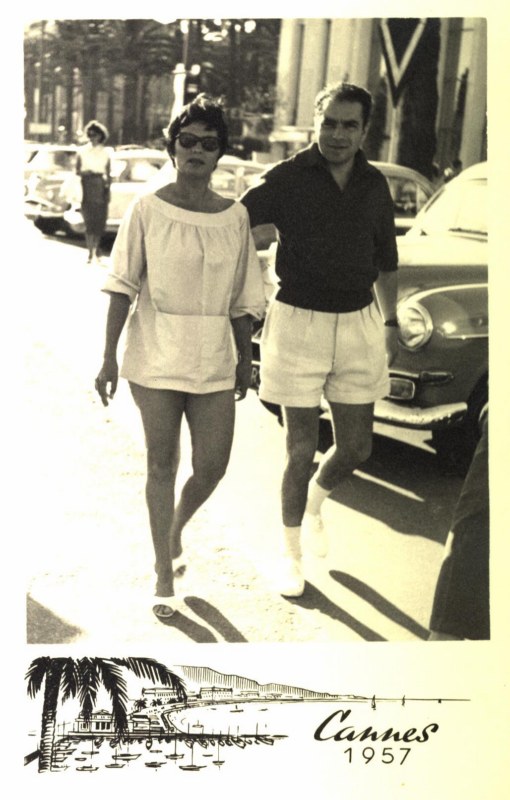
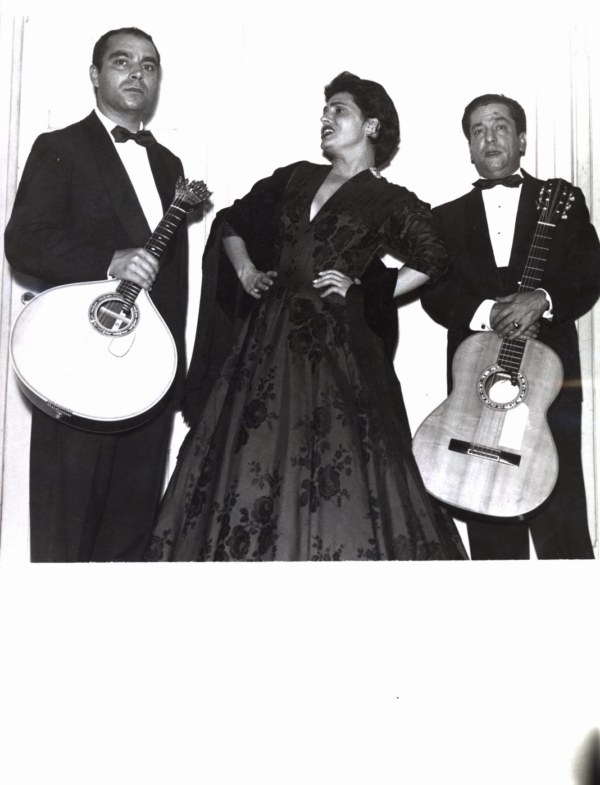
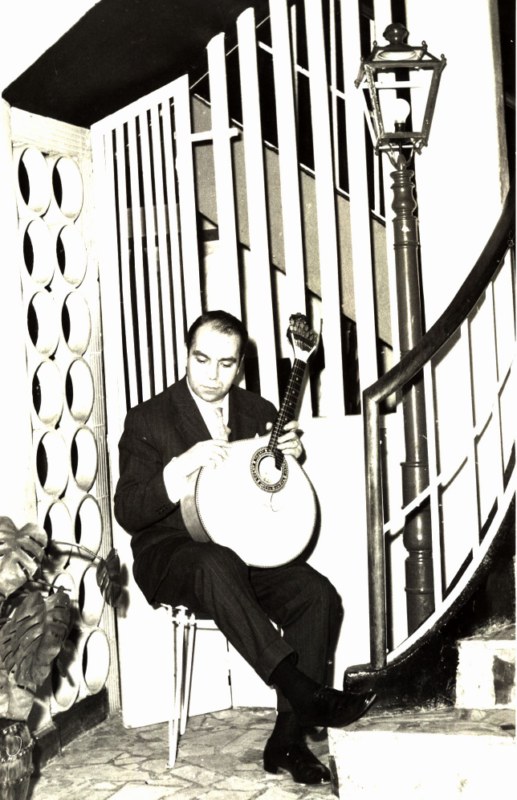
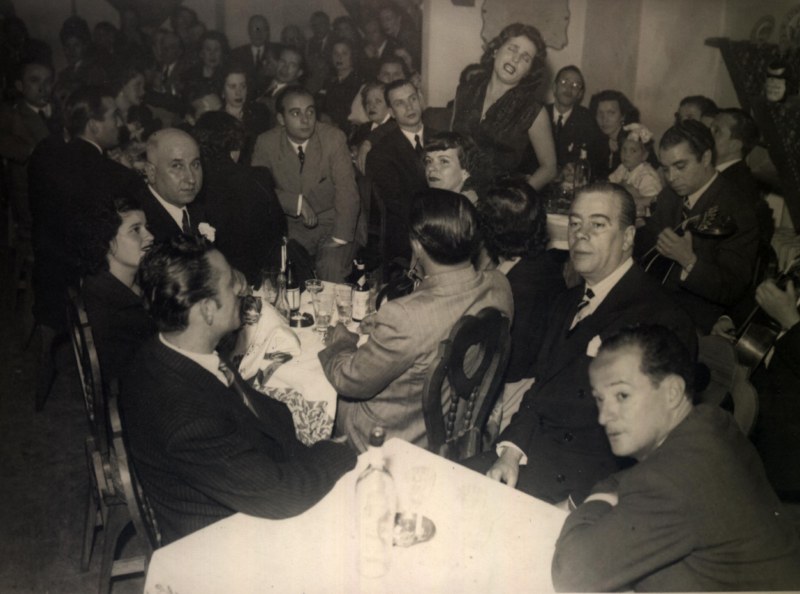
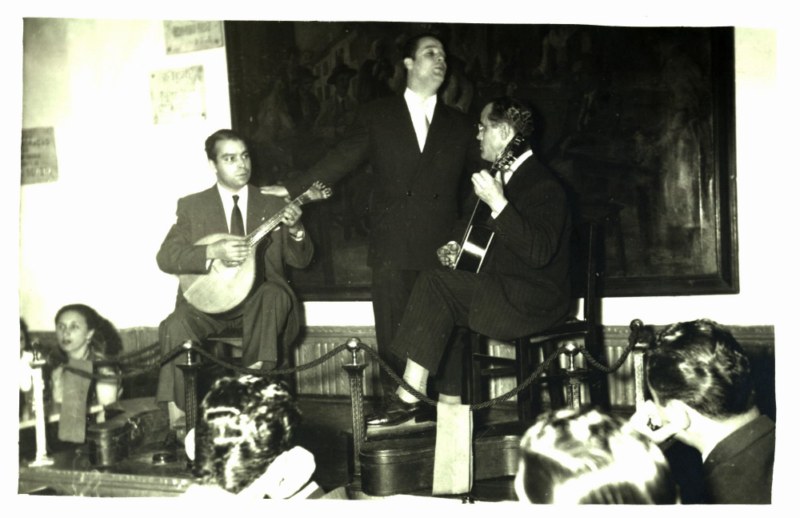
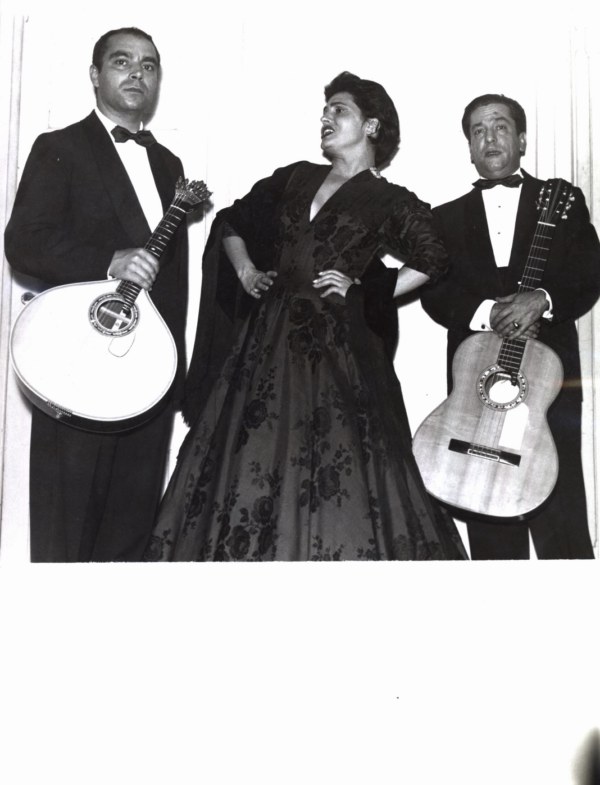
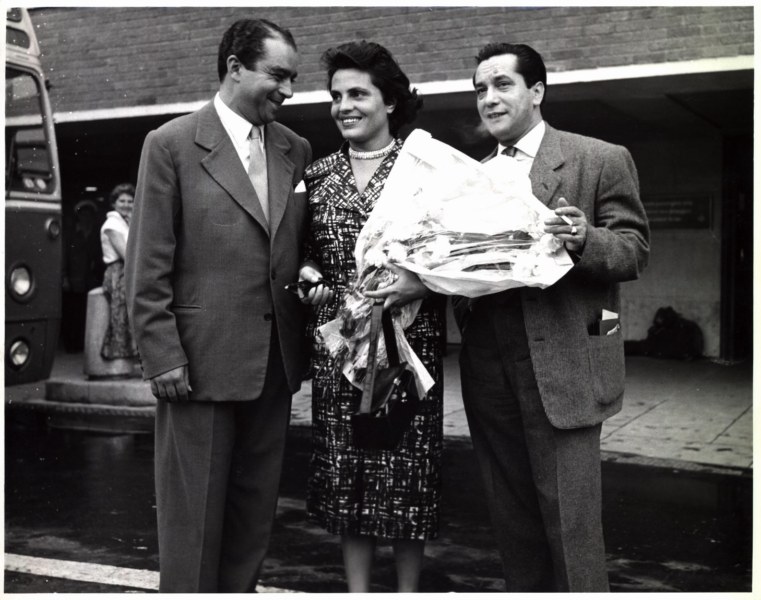
-
Flôr de Amendoeira José Domingos Camarinha (José Domingos Camarinha)